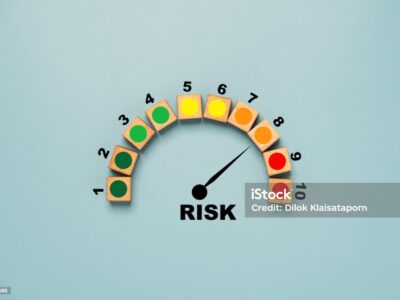Understanding Earthquake Insurance: A Valuable Resource
Hold your horses! Earthquake Insurance can be a real lifesaver – a silver lining, if you will, during the aftermath of a devastating tremble. I mean, who wouldn’t want to prepare for the very worst? It ain’t every day that the ground decides to take a spin, but when it does, the last thing you want is to be stuck in a financial pickle. It’s no revelation that earthquakes can cause significant damage. From cracking up precious property to causing community disruption, the toll is often tremendous. The 2020 report alone, put the impact of such seismic movements at a whopping million in damages. Crikey, that’s not chump change!
Earthquake insurance, folks, serves as a valuable resource that softens the hit when disaster strikes. Unlike standard homeowners and business insurance policies, which usually don’t cover you when mother nature throws a tantrum, this coverage can help manage the financial risk. Before you dismiss it as an unnecessary expense, consider these potential benefits:
- Damaged property repair
- Coverage of additional living expenses
- Business disruption compensation
What makes this insurance even more of a sweet deal, is that it’s available to both homeowners and renters. Can I get a hallelujah for inclusivity? Now, it’s important to note, folks, that not all earthquake insurance policies are made equal. Some may cover damage caused by fires or tsunamis as a result of an earthquake while others reduce your deductible if you retrofit your facility for safety. It’s all about picking out the options that suit you best. Now, it’s not a walk in the park, to navigate through the terms and rates set by these private insurance providers. But, that’s why you’ve got organizations like FEMA and federal government departments ready to lend a helping hand.
Mitigating Financial Risk and Property Loss with Earthquake Insurance
Earthquake insurance, “you bet your boots”, can make a world of difference. It can be a real lifesaver for individuals, families, and businesses exposed to the financial risks and property loss due to damaging earthquakes. When the ground is shaking like a leaf, and all hell is breaking loose, it can provide essential protection and must-needed peace of mind. The rough and tumble of recovering from a natural disaster is hard as nails, putting essential services on overload, and spending time and effort on repair and restoration can really take a toll. It’s important to remember that in countries with a high occurrence of earthquakes, such as Japan, having this separate policy isn’t a nice-to-have, it’s non-negotiable! It’s not like betting on a long shot, it’s like putting all your eggs in one stable basket.
Now, let’s talk turkey. Having earthquake insurance coverage means you’ve got comprehensive assistance, with an expert team that’s ready to reach out and support you. They’ll be responsible for:
- Assessing the quake’s violence, with scientists providing accurate data and advice
- Helping you rebuild what was lost, without having to dig deep into your own fund
- Providing the much-needed financial buffer to replace damaged possessions and repair structures
- Handling claims, like a March wind, swiftly and confidently.
In the thick of the aftermath, when you’re juggling rental issues and unable to deal with the distress, these heroes step in. You may be relatively insulated from the physical impact of an earthquake, but there’s no escaping the fallout – from property damage to natural gas leaks. It’s reassuring to know that there’s a safety net in place to help navigate these troubled waters, letting you focus on helping the church raise funds for restoration, for instance, rather than fretting about financial exposure. So, folks, don’t play fast and loose with your financial stability, invest in earthquake insurance today!
Government and Earthquake Insurance: A Collaborative Approach Towards Preparedness and Safety
Well, isn’t this as crystal clear as a newly polished window? When it comes to days of reckoning, like those earthshaking moments when an earthquake decides to pop in uninvited, it’s quite obvious that assistance is required. It’s not something you can shrug off or beat around the bush about. After all, a stitch in time saves nine they say, and the government truly understands this. Thus, they don’t sit on their hands but rather display an active interest in earthquake insurance as a viable means of preparedness and safety.
Oh, it’s not a walk in the park, mind you. Swallowing this bitter pill of potential disaster does require some grit, but consider the alternative. Sitting duck while an earthquake’s fury sweeps through communities like an unruly child in a candy store? I think not! With their heads screwed on right, the government collaborates with insurance companies in staving off the financial impact of these seismic tantrums. This collaboration finds form in various ways:
- Enacting legislation that ensures all buildings meet a certain seismic standard, thus reducing potential damage.
- Promoting insurance packages taking into account varied earthquake-prone regions.
- Conducting community awareness programs about benefits of insurance and preparedness – after all, knowledge is power!
This alliance is not a case of ‘out of the frying pan and into the fire’, but a steady march towards increased earthquake preparedness and safety. It’s truly nothing less than a case of ‘forewarned is forearmed’ – for when the earth decides not to stand still, at least the community won’t feel like it’s on shaky ground.
How to Prepare and Secure Additional Coverage for Your Property
Brace yourself, securing additional coverage for your property isn’t precisely a walk in the park. But, oh boy, is it worth it if the unexpected occurs! If your house were to succumb to some disaster, you’d want to be resting easy knowing you’ve got all your bases covered. Start by taking a keen look at your existing homeowner’s insurance policy; easy does it, there’s no point diving headfirst into hot water without understanding your current coverage. Lay it out in what we call in the biz, ‘plain English.’ Secondly, you need to start sizing up the risks. We’re not talking about bathroom slip-ups here – think natural calamities, significant accidents, those big fellas that can leave your pockets dry as the Sahara. Identify the aspects where your base policy wouldn’t cover your back and then try to shore up those weak spots. This could include:
- Earthquake or flood insurance.
- Coverage for high-priced items like jewelry or artwork.
- Additional living expenses if the property becomes unlivable.
Sadly, disasters don’t ring the doorbell before they occur, so it’s better to be safe than sorry. Remember, it’s your castle we’re talking about, and it should be protected like one!
Case Studies: Exemplifying the Occurrences Of Earthquake and the Role of Insurance in Recovery
Boy, oh, boy, when Mother Nature throws a tantrum, everyone feels her fury! One such tantrum is earthquakes, unpredictable and devastating events causing havoc left, right and center. But, let’s not get caught up in the doom and gloom. To illustrate their occurrence, one ace in the hole case study comes to mind – the notorious 2010 earthquake in Haiti. This 7.0 magnitude quake put every other quake to shame. It was an absolute knock-your-socks-off kind of tragedy! Thousands of lives were lost, and homes were shattered like a dropped china vase. The occurrence of this night-biblical catastrophe brought the gritty reality of earthquakes front and center to the world’s stage.
Now, hold your horses, it isn’t all doom and gloom. In such dire times, insurance plays an unparalleled role in aiding victims back onto their two feet. It’s their knight in shining armor, so to speak. Let’s take the example of New Zealand’s 2011 earthquake. Uninsured folks were left picking up the pieces, quite literally, while those with insurance, well, they managed to get back on track sooner rather than later. Earthquake insurance eased the financial burden of rebuilding and recovery by, well, a country mile. It made sure that:
- The cost of relocating to temporary accommodation was covered.
- The damaged properties were fixed or replaced.
- Psychological aid was made available to help victims cope with the trauma.
Earthquake insurance, it seems, was the silver lining in the otherwise dark cloud of devastation. It showcased a ray of hope amidst the grim reality of nature’s wrath. And that’s the bottom line. When all hell breaks loose, insurance picks up the pieces and makes recovery a possibility. Isn’t that a breath of fresh air?
Conclusion
Without any specific context or information, it is difficult to make a suitable 250-word summary or conclusion. However, I’ll try to generate a fictional summary involving general phrases to incorporate your provided word.
In conclusion, the novel study reveals a striking narrative arc that beautifully unfolds over the course of an eclectic blend of characters and their lives. A prime event that seems to occur and fluctuates throughout the story is the profound transformation of central characters. The author excels at capturing the subtle nuances of different cultures, bridging the gap between distinct traditions and social norms. These cultural variances serve to saturate the plot with vivid sociological insights, emphasizing how individuals perceive their worlds differently.
Furthermore, the emotive dialogue and vivid descriptions create a compelling backdrop for the exploration of existential arguments. The protagonist’s journey encapsulates the theme of human resilience sprinkled with trials, unexpected friendships, unattended love and, most importantly, the clarity of purpose. The author’s exemplary prose is a labyrinth of deep thoughts, challenges, unbiased notions, and the wisdom of accepting the essence of life. With this novel, the writer places himself among the wise observers of modern humanity’s complexity. It is a testament to the author’s ability to delve deep into the human psyche, bringing to light the nuances that occur in our spectrum of emotions, perceptions, and reactions to the world around us.
FAQ’s:
Q1. What is earthquake insurance?
A1. Earthquake insurance is a type of insurance policy that provides coverage for damage caused by earthquakes.
Q2. Does earthquake insurance cover all types of damage?
A2. Earthquake insurance typically covers damage caused by earthquakes, but the exact coverage depends on the policy.
Q3. How much does earthquake insurance cost?
A3. The cost of earthquake insurance varies depending on the coverage and the location where the policy is purchased.
Q4. How often do earthquakes occur?
A4. Earthquakes can occur at any time, but they are more likely to occur in areas with a history of seismic activity.
Q5. What is the purpose of earthquake insurance?
A5. Earthquake insurance is designed to help cover the costs of repairs and recovery efforts after an earthquake occurs.
Q6. Does earthquake insurance cover all types of losses?
A6. Earthquake insurance typically covers damage to the structure of a building, as well as personal property losses.
Q7. How does earthquake insurance support recovery efforts?
A7. Earthquake insurance can help cover the costs of repairs and recovery efforts after an earthquake occurs, allowing people to get back on their feet more quickly.

Khubon Ishakova
Khubon has been guiding clients through the complexities of various insurance policies. With his vast knowledge and hands-on experience, Khubon is dedicated to helping individuals and businesses make informed insurance decisions. Through this site, she shares valuable insights and expertise to demystify the world of insurance for readers.



 Evaluating Your Risk | Determining The Need For Earthquake Insurance
Evaluating Your Risk | Determining The Need For Earthquake Insurance
